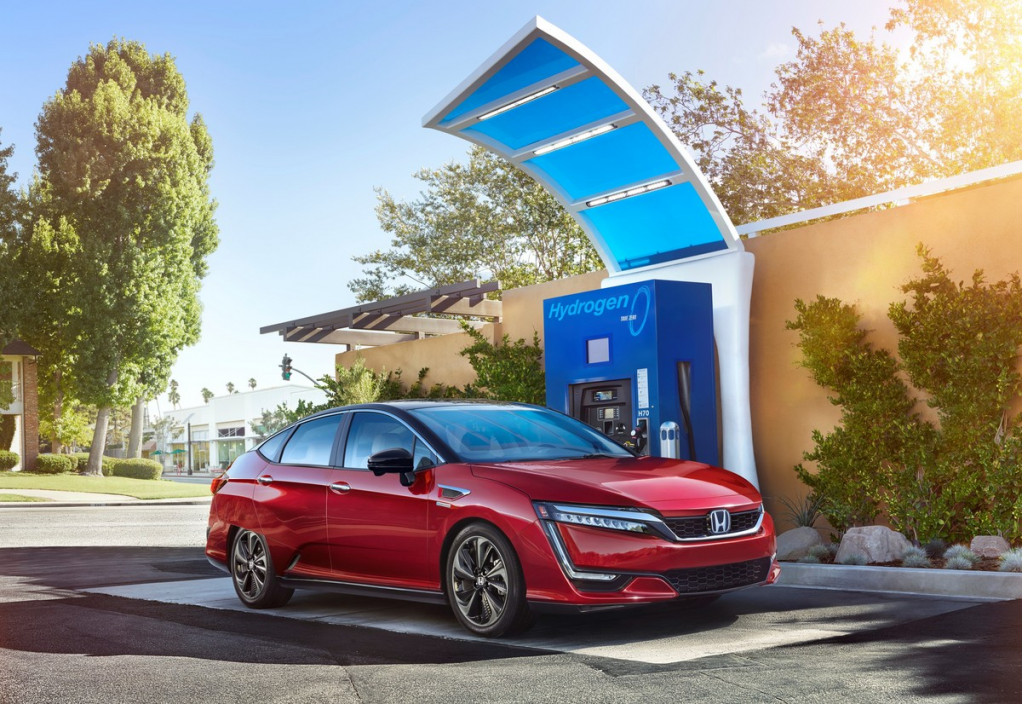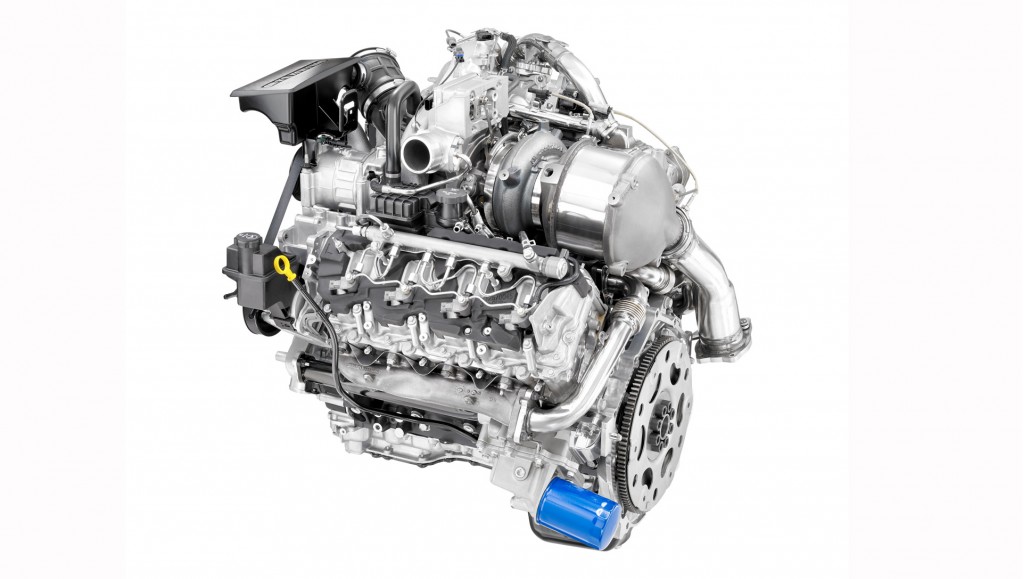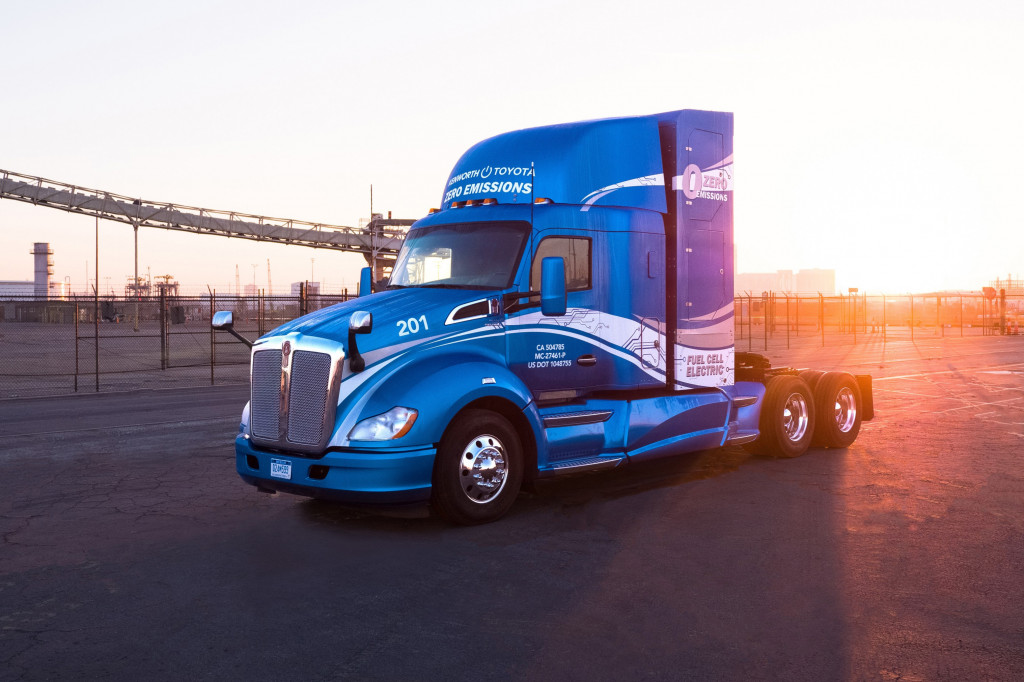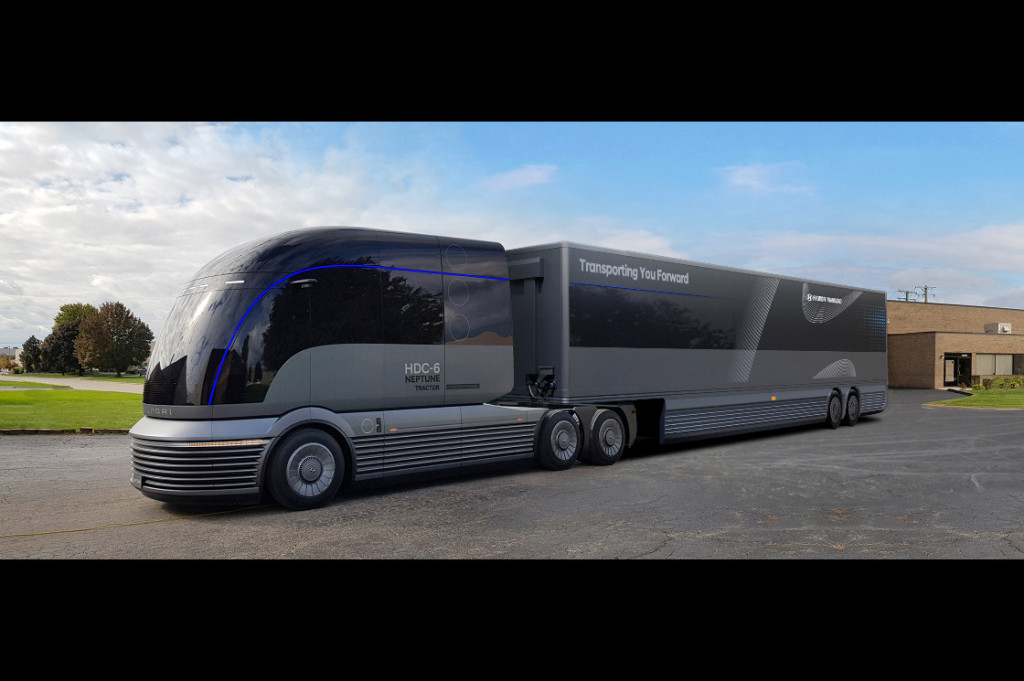Honda and Isuzu Motors have signed an agreement to work together in developing commercial trucks powered by hydrogen fuel cells, the companies announced Wednesday.
This would be the first time that Honda has provided its fuel cells to another company or given them access to fuel-cell vehicle development. It might also be the first time Honda pivots away from passenger cars as the intended beneficiaries of its fuel-cell technology, which the company has applied in a series of passenger cars going back to the late 1990s, with research going back more than 30 years.

2020 Honda Clarity Fuel Cell
While earlier Honda fuel-cell efforts were mostly demonstrations for municipal fleets, the current 2020 Honda Clarity Fuel Cell is available to the public in California, where it qualifies for single-occupant HOV lane access and a $5,000 state rebate.
A truck venture may give Honda a good outlet for the technology. It has a joint-venture agreement with General Motors to start mass production—due potentially as soon as later this year—of next-generation fuel-cell systems for products from each automaker.
That partnership aims to lower the cost of fuel cells, make them easier to produce, and to make more of them—potentially increasing the number of fuel-cell vehicles tenfold—only the infrastructure isn’t looking all that much more developed (or expanded beyond California) compared to when the venture came together in 2017.

Duramax turbocharged 6.6-liter V-8 diesel engine
Isuzu used to be closely linked to GM (and to a lesser degree Toyota), but in recent years it’s been seeking an independent path, buoyed by a set of new alliances, such as its supplying a light-duty pickup for Mazda for some global markets. Its relationship with GM continues with a DMAX joint venture in Ohio that builds diesel engines for GM trucks.
Honda provided the following response to Green Car Reports when we asked about GM's involvement: "GM is not involved in the Honda-Isuzu collaboration. Our joint fuel cell stack business with GM is making good progress, and we are currently working on installing production equipment."
The other two automakers who are heavily invested in fuel-cell tech are Toyota and Hyundai, and they too have been seeking to diversify beyond passenger vehicles. Toyota has, for instance, a joint project with PACCAR and its Kenworth brand to put 10 hydrogen fuel-cell Class 8 semi tractors on the road—mostly as drayage tools to move goods short distances to and from shipping ports. That’s part of an $82 million project, half funded by the California Air Resources Board and the balance by Toyota, Shell, and Kenworth. Toyota is also looking at using its fuel cells for manufacturing power-generation purposes.

2019 Project Portal Truck--Kenworth/PACCAR
Toyota certainly hasn’t given up on fuel-cell passenger cars. A new Mirai, set to utilize the next-generation fuel-cell stack, was revealed in concept form last fall, and BMW is set to use that next-gen hardware for its BMW i Hydrogen Next, a hydrogen fuel-cell version of the X5.
Hyundai, which likely sold more hydrogen-powered cars than any other automaker globally in 2019, has its sights set well beyond cars and transportation, to in October showed its own fuel-cell-powered HDC-6 Neptune Class 8 semi concept, a clean-slate, retro-futuristic design that shows the company wanting to keep it all in-house, from the fuel-cell stack to the cab design.

Hyundai HDC-6 Neptune FCEV Semi
All of these would potentially rival the Nikola’s hydrogen fuel-cell semis, which will run on Nikola’s own network of up to 700 fueling stations.
Honda and Isuzu are also taking a big-picture view. The companies said that with joint research they aim to "realize clean, low-noise, low-vibration heavy-duty trucks customers are waiting for," as well as aim toward the early realization of a hydrogen society.













